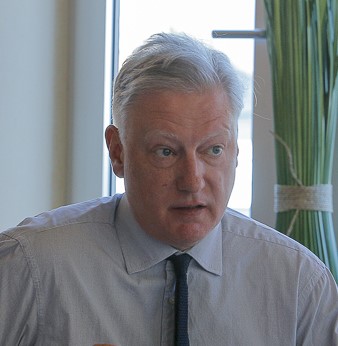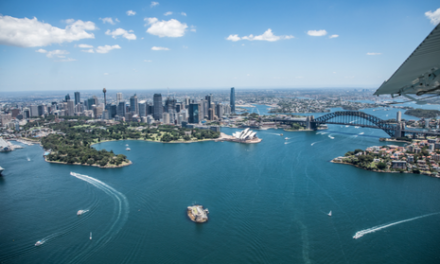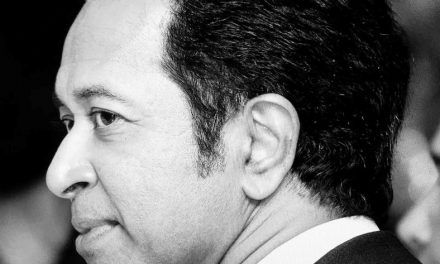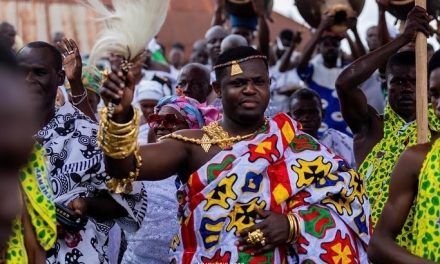BTC student and ex-MP Harold Elletson visited top judges in the East African country.
The presidents of Rwanda and Burundi were returning from a meeting of Eastern and Central African leaders in Tanzania. It was Wednesday 6 April 1994, and they had been discussing ways of ending the violence in their countries. Both men were ethnic Hutus. As their aircraft made its long descent towards the runway in Kigali, it was hit by surface-to-air missiles and both presidents were killed, together with all their crew.
The incident led to 100 days of inter-ethnic slaughter that became known as the Rwandan genocide. Hutu extremists blamed the Rwandan Patriotic Front, a Tutsi rebel group, for the attack. During the next few days, roadblocks were set up across the country and ethnic Tutsis were arrested and killed. A radio station, Radio Mille Collines, urged the majority Hutu population to turn on their Tutsi neighbors and ‘kill the cockroaches’. According to some estimates, as many as 800,000 people died in the resulting slaughter.
It is impossible to visit Rwanda and not be reminded of the genocide. Despite the country’s impressive economic achievements and its relative affluence, it remains haunted by the past. The genocide memorials, including churches with the skulls of thousands of men, women, and children piled high in narrow rows, are a dumbfounding, mentally overwhelming testimony to the horror of the period between April and July 1994.
At the time, I was a Member of Parliament and about to join the most junior ranks of Master John Major’s government. When the first reports began to emerge about what was happening in Rwanda, few people paid any attention. It was far away and, as a ‘Francophone’ country, not in our ‘sphere of influence’. It was not long since the fall of the Berlin Wall and the first Iraq War. There were small conflicts stirring in the oil-rich regions on the fringes of the old Soviet Union, and Europe had its own outbreak of ethnic violence on its doorstep in the former Yugoslavia. Rwanda was way down the agenda for both politicians and journalists.
Now the country has suddenly been making the headlines in Britain. Home Secretary Priti Patel proposed deporting refugees there and her first efforts at executing her plan ended in the courts. The Rwandan Government has requested the extradition of those currently in Britain whom it accuses of crimes against humanity, whilst campaigners argued that they would not be given a fair trial. And the Commonwealth Heads of Government meeting recently took place in Kigali’s impressive International Convention Centre, focusing the attention of the media on President Paul Kagame and his authoritarian regime.
The controversy surrounding Kagame’s Rwanda (the alleged crimes of the president and his supporters are described, inter alia, in Michaela Wrong’s book, Do Not Disturb) are set against a backdrop of immense change in this strategically important country, as it has struggled to extinguish the flames of ethnic hatred and to emerge from the genocide.
The experience of the legal sector is easy to overlook in this vast and distressing panorama, but it should be neither forgotten nor misunderstood. The genocide removed a whole generation of judges and lawyers. It also struck at what remained of any concept of the rule of law. In the aftermath of the slaughter and in revulsion at the dilatory role of France and Belgium, in particular, the new leadership, many of whom had grown up in English-speaking Uganda, began to turn away from the ‘Francophonie’ and towards the Commonwealth, which Rwanda joined in 2009. Reforms in Rwanda’s legal sector mirrored this strategic reorientation, aiming to move away from a continental or civil law system and towards one based more on common law concepts and the creation of a body of case law.
I was in Rwanda recently for the eLearning Africa conference and, as a part-time student on the Bar course at Manchester Metropolitan University, somewhat cheekily, I wrote to the President of the High Court, Mr Justice Xavier Ndahayo, and asked him for an appointment. To my surprise, he accepted and invited a couple of other High Court judges to our meeting. I was accompanied by a South African friend from eLearning Africa, Rob Vember, a journalist who is also completing part-time postgraduate law studies at the University of Cape Town. We had a fascinating discussion about the impact of the genocide, the process of reconciliation in Rwanda, South Africa and Northern Ireland, the importance of the rule of law and an independent judiciary, the creation of functioning courts and the transfer to a hybrid system of law. Mr Justice Ndahayo seemed pleased with the discussion, so much so that he arranged for us to visit his superior, Chief Justice Dr Faustin Ntezilyayo, a former Minister of Justice and a specialist in commercial law, who had overseen some of the reforms of the legal system.
Can one have meaningful discussions with judges under an authoritarian regime? Are judges under such a regime capable of acting independently or are they, inevitably, simply tools of the state and its apparatus of repression and control? Are Rwandan judges so constrained by external, political pressures, or so corrupt, that they are incapable of ensuring a fair trial?
These are important questions which need to be asked as we seek to engage more closely with Rwanda and contemplate issues such as extradition requests or the export of refugees. I cannot speak to the extent to which Rwandan judges are constrained by political pressure, although in 2018, together with a panel of three high court judges, Mr Justice Ndahayo overturned the decision of a lower court and declared that one of President Kagame’s most prominent critics, the activist Diane Shima Rwigara, who had spent a year in prison, was innocent of charges of fraud and insurrection.
What I can say, with some confidence, is that the judges I met seemed wholly sincere in their interest in learning from, and developing a closer relationship with, the courts and the legal profession in the ‘Anglosphere’. Whether it was rules of evidence, case management, professional ethics or the development and application of case law, I found a real interest in what could be learned from the English legal system. And there was an appreciation too that we might be interested to learn from African traditions, particularly in areas such as alternative dispute resolution. Rwanda’s system of ‘Abunzi,’ for example, is a ‘home grown initiative,’ in which community mediators help to resolve small claims disputes cheaply and effectively without the involvement of the courts.
There was a particular interest in legal education and training, and in the establishment of the infrastructure to support the development of a body of case law. Partly because of the genocide, which necessitated the rapid recruitment straight from university of a new generation of judges, many members of the judiciary have never served first as advocates. Indeed, one of the judges I met, Mr Justice Kamanzi, became a Circuit judge immediately on leaving university.
Technology has ensured that online and distance learning is easier now than ever, and the opportunities for collaboration in legal education and training are significant. Equally, the growth of legal services in Rwanda is impressive – the law reports are available online, admittedly only so far in Kinyarwandan but there is less need than in many other countries for other languages, such as English or Kiswahili, as a lingua franca. There has been a notable success too in the development of an electronic case management system, which allows ordinary citizens to fill out forms online and upload key documents in civil disputes, enabling judges to prepare effectively before a hearing.
So, should we engage with Rwanda’s judiciary or stand back and trumpet the easy charge that a fair trial is impossible in the country? Rwanda is important to western interests in East and Central Africa and the present leadership, for all its faults, set the country on a path towards the Commonwealth and the ‘Anglosphere’. We should recognise that, apart from anything else, our legal system and the expertise of the profession that sustains it are important tools of soft power and influence.
In turn, Rwanda’s Chief Justice knows that, as his country seeks to become a major financial and commercial centre, its ambitions must be underpinned by the development of robust legal institutions. After all, the rule of law is important for business confidence, and nothing would kill off Rwanda’s ambitious plans quicker than a reputation for corruption and arbitrariness.
For all the horror of its past and the many doubts and reservations about its present, there are reasons for optimism about Rwanda’s future. Capacity building in the legal sector can drive change. We should not hesitate to help Rwanda to develop its legal institutions.

A part-time student on the BTC course at Manchester Metropolitan University, Dr Harold Elletson is a former MP for Blackpool North and an international public affairs adviser, who has been Communications Director of eLearning Africa and Director of the NATO Forum on Business and Security. During his time as an MP, he served as Parliamentary Private Secretary to the Secretary of State for Northern Ireland, the Rt Hon Sir Patrick Mayhew QC.




